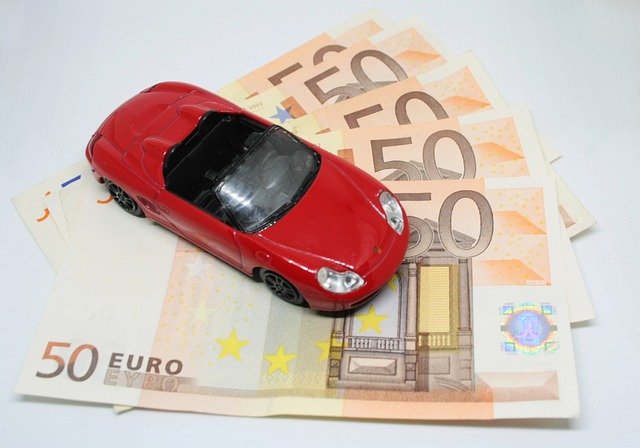Understanding Repossessed Cars: A Complete Guide to Buying and Auctions
When financial hardships strike, car owners sometimes default on their loan payments, leading to vehicle repossession by banks and financial institutions. These repossessed vehicles create a unique market opportunity for buyers seeking potentially good deals. Repossessed cars are vehicles that have been seized by lenders after borrowers fail to meet contractual payment obligations. While the circumstances around repossession are unfortunate, they present an alternative pathway to car ownership that can be beneficial for informed buyers.

What Are Repossessed Cars?
Repossessed cars are vehicles that lenders have reclaimed from borrowers who defaulted on their loan agreements. When someone purchases a car with financing, the vehicle serves as collateral for the loan. If payments aren’t made as agreed, the lender has the legal right to take back the vehicle. Financial institutions don’t typically want to keep these vehicles in their inventory, as their business is lending money, not selling cars. Therefore, they aim to recover their losses by selling these vehicles quickly, often at prices below market value.
Most repossessions occur after three or more missed payments, though the exact timeline varies by lender and state regulations. The repossession process itself can happen without warning in many states, with agents legally authorized to take vehicles from driveways, parking lots, or public streets.
Where to Find Repossessed Cars For Sale
Finding repossessed cars requires knowing where to look. Several channels exist for purchasing these vehicles:
-
Bank and Credit Union Direct Sales: Many financial institutions sell their repossessed inventory directly to avoid auction fees. Contact local banks and credit unions about their “repo” or “recovered asset” sales.
-
Government Auctions: Federal, state, and local government agencies sell seized and surplus vehicles. These include cars repossessed due to tax liens, criminal investigations, or government fleet replacements.
-
Online Auction Platforms: Websites like Copart, IAAI, and GovDeals feature repossessed vehicles from multiple sources. These platforms allow you to browse inventory nationwide from the comfort of your home.
-
Physical Auto Auctions: Traditional auction houses specialize in selling repossessed and off-lease vehicles. These events typically require in-person attendance and immediate payment upon winning a bid.
-
Dealership Pre-Owned Sections: Some dealerships purchase repossessed cars at auctions and include them in their used car inventory after inspection and reconditioning.
Advantages of Buying Repossessed Cars
Purchasing a repossessed vehicle offers several potential benefits that make them attractive to budget-conscious buyers:
Price Advantage: The primary appeal of repossessed cars is their typically lower price point compared to similar vehicles on the retail market. Lenders are motivated to recoup their losses quickly rather than maximize profits, often resulting in discounts of 20-40% below market value.
Relatively Recent Models: Many repossessed vehicles are relatively new, as borrowers often default within the first few years of ownership. This means buyers can potentially acquire late-model vehicles at substantial discounts.
Negotiation Opportunities: Particularly with direct bank sales, there may be room for negotiation, especially if the vehicle has been in inventory for an extended period.
Variety of Options: From economy cars to luxury vehicles, repossessions occur across all vehicle segments and price points, giving buyers a wide range of choices.
Risks and Considerations When Buying Auction Cars
Despite their attractive pricing, repossessed vehicles come with unique risks that buyers should carefully consider:
Limited or No Inspection Opportunities: Many auctions provide only brief inspection periods or require purchase decisions based solely on photos and descriptions. This restricted access increases the risk of overlooking mechanical issues.
Uncertain Vehicle History: Repossessed cars may have incomplete maintenance records, making it difficult to verify proper care. Previous owners experiencing financial difficulty might have also deferred maintenance.
No Warranties: Most repossessed vehicles are sold “as-is” without warranties, leaving buyers responsible for any repairs needed after purchase.
Hidden Damage: Some vehicles may have been intentionally damaged by disgruntled former owners prior to repossession, or might have unrepaired accident damage that isn’t immediately apparent.
Competitive Bidding: Popular models at auctions can attract significant interest, potentially driving prices closer to retail values and eliminating the cost advantage.
Cost and Value Analysis of Repossessed Cars
Understanding the true cost implications of buying repossessed cars requires looking beyond the purchase price. Here’s a breakdown of what to expect financially:
Initial Purchase Savings: Repossessed vehicles typically sell for 20-40% below retail value, with the discount varying based on vehicle condition, age, and the auction environment.
Inspection Costs: Budgeting $100-300 for a pre-purchase inspection by a qualified mechanic is strongly recommended when possible.
Potential Repair Expenses: Setting aside $500-2,000 for immediate repairs and maintenance is prudent when purchasing any repossessed vehicle.
Documentation and Transfer Fees: Budget $200-500 for title transfer, registration, and administrative fees which vary by state and selling institution.
Transportation Costs: If purchasing from a distant auction, factor in $1-2 per mile for vehicle shipping or personal travel expenses to collect the vehicle.
| Source Type | Average Discount | Typical Additional Costs | Best For |
|---|---|---|---|
| Bank Direct Sales | 15-25% | Minimal transaction fees | Local buyers seeking transparency |
| Government Auctions | 30-40% | $100-200 buyer fees | Patient buyers with mechanical knowledge |
| Online Auction Platforms | 20-30% | $400-600 buyer fees + shipping | Nationwide shoppers seeking variety |
| Physical Auto Auctions | 25-35% | $300-500 buyer fees | Experienced buyers comfortable with quick decisions |
| Dealer Resales | 10-15% | None, but smaller discount | Buyers wanting reconditioning and limited warranty |
Prices, rates, or cost estimates mentioned in this article are based on the latest available information but may change over time. Independent research is advised before making financial decisions.
Tips for Successfully Buying Repossessed Cars
To maximize your chances of finding a quality repossessed vehicle at a good price, follow these strategic approaches:
-
Research Thoroughly: Obtain the vehicle identification number (VIN) when possible and run history reports through services like Carfax or AutoCheck before bidding or purchasing.
-
Set a Firm Budget: Decide your maximum price including potential repair costs and resist emotional bidding that exceeds this limit.
-
Attend Preview Days: When available, take advantage of inspection periods before auctions to examine vehicles personally or bring a mechanic.
-
Start with Lower-Risk Vehicles: Focus initially on repos with lower mileage, more recent model years, and popular makes known for reliability.
-
Understand Payment Terms: Be prepared with proper payment methods, as many auctions require immediate payment via cash, cashier’s check, or wire transfer.
-
Check for Liens: Verify that the selling institution has clear title to the vehicle and that no additional liens exist that could become your responsibility.
-
Calculate Total Costs: Factor in buyer’s premiums, transportation, taxes, and anticipated repairs when comparing auction prices to retail alternatives.
The world of repossessed cars offers genuine opportunities for significant savings, but success requires careful research, realistic expectations, and a methodical approach. By understanding both the potential benefits and inherent risks, buyers can navigate this specialized market to find vehicles that represent true value rather than hidden headaches.




